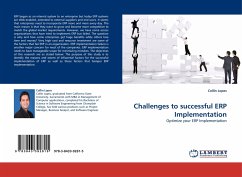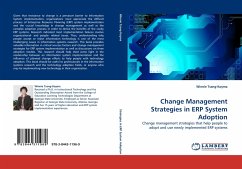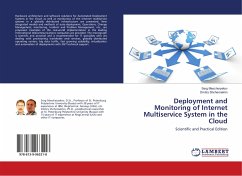ERP began as an internal system to an enterprise but today ERP systems are Web-enabled, extended to external suppliers and end users. It seems that enterprises need to incorporate ERP more and more every day. The main reason is that they want to grow and become more competitive to match the global market requirements. However, we have come across organizations that have tried to implement ERP but failed. The question is why and how some enterprises get huge benefits while others lose time and money? Very high cost and resource investment are some of the factors that fail ERP in an organization. ERP implementation failure is another major concern for most of the companies. ERP implementation needs to have manageable scope for minimizing mistakes. The objectives of this research are as stated below: The purpose of this study is to identify the reasons and extent of influential factors for the successful implementation of ERP as well as those factors that hamper ERP implementation.
Bitte wählen Sie Ihr Anliegen aus.
Rechnungen
Retourenschein anfordern
Bestellstatus
Storno








